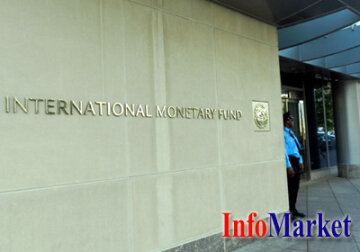
The IMF has approved a new economic reform program for Moldova worth about $590.6 million and the first tranche of $84.4 million.
According to the IMF report, the approval of the new 3-year program allows paying out about $84.4 million at once, and the total expected payments within the 40-month program are about $590.6 million. The goals of the 40-month program are to support recovery from the pandemic, meet urgent development needs and strengthen governance and institutional frameworks. A key challenge for policymakers is to develop a reasonable set of policies to mitigate the impact of the pandemic and achieve development goals without jeopardizing debt sustainability. Structural reforms will address vulnerabilities to improve the rule of law and anti-corruption, and strengthen fiscal and financial management, ultimately accelerating revenue convergence between Moldova and European countries. Following the IMF Executive Board discussion, IMF Deputy Managing Director and Acting Chairman Kenji Okamura said the Moldovan authorities have made commendable progress in improving the banking sector and strengthening macrofinancial stability. However, the COVID-19 pandemic, the 2020 drought and the continuing rise in global energy prices have slowed economic activity, increased downside risks and complicated the policymaking process. He noted that while emergency financial assistance from international partners helped mitigate the economic impact of the pandemic, Moldova remains one of the poorest countries in Europe, with long-standing governance problems and structural weaknesses that hamper income convergence. Against this background, the IMF-supported programs under the Extended Fund Facility and Extended Credit Facility have three main objectives: to support recovery from the pandemic; to meet urgent development needs; and to strengthen Moldova's governance and institutional framework. Kenji Okamura noted that the Moldovan authorities responded quickly to the negative macroeconomic consequences of the combined shocks, focusing on urgently needed policy measures to support the health system, social assistance programs and business activity. However, the lack of implementation of approved COVID-related anti-crisis measures underscores the need to address long-standing capacity constraints. A solid set of policies is needed to sustain the economic recovery, he said, including short-term fiscal policies that carefully balance targeted social assistance and development spending. It was stressed that recent reforms implemented by the National Bank of Moldova with IMF support proved vital to maintain macro-financial stability during the crisis. "Looking ahead, the authorities should continue their efforts to improve the national bank’s policy credibility and effectiveness; bolster financial sector supervision, financial crisis management, and macroprudential frameworks; and strengthen the national bank’s governance, transparency, and accountability. Safeguarding the NBM’s independence remains a critical precondition for its effectiveness and credibility. In addition, addressing significant vulnerabilities in the non-bank financial sector, strengthening the AML/CFT regime, and making decisive progress on asset recovery will be necessary to safeguard macro-financial stability," said the IMF Deputy Managing Director. On the fiscal front, improving domestic revenue mobilization, increasing public spending efficiency, decisively addressing fiscal risks emanating from state-owned enterprises, and continuing efforts to improve budget quality and transparency are vital to improve fiscal outcomes and nurture more responsive and impactful fiscal policy. Continued engagement with developmental partners to leverage their expertise and secure needed concessional financing is needed. // 21.12.2021 - InfoMarket







